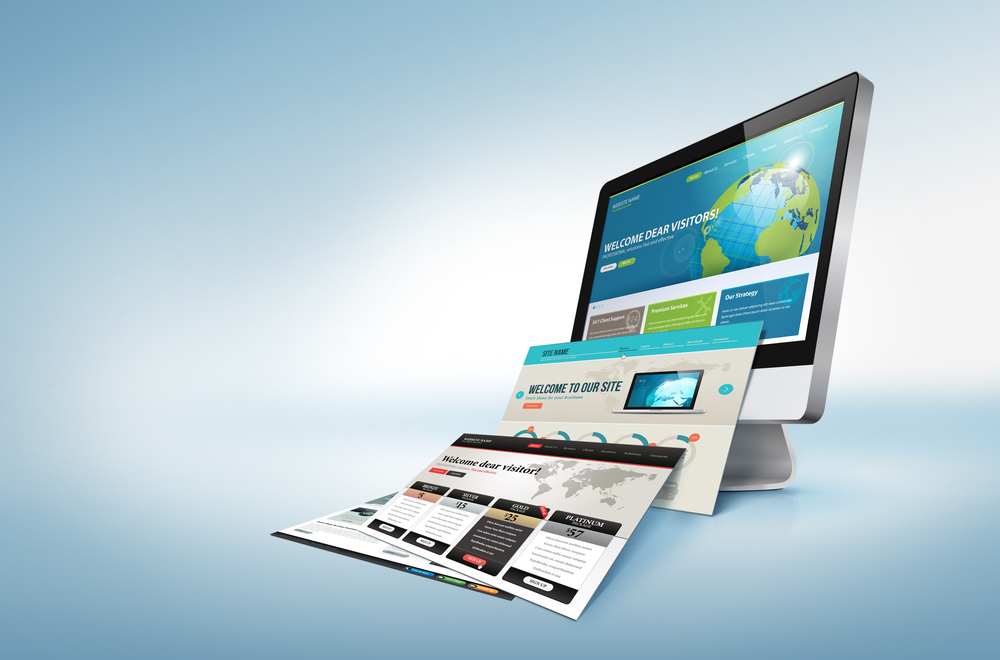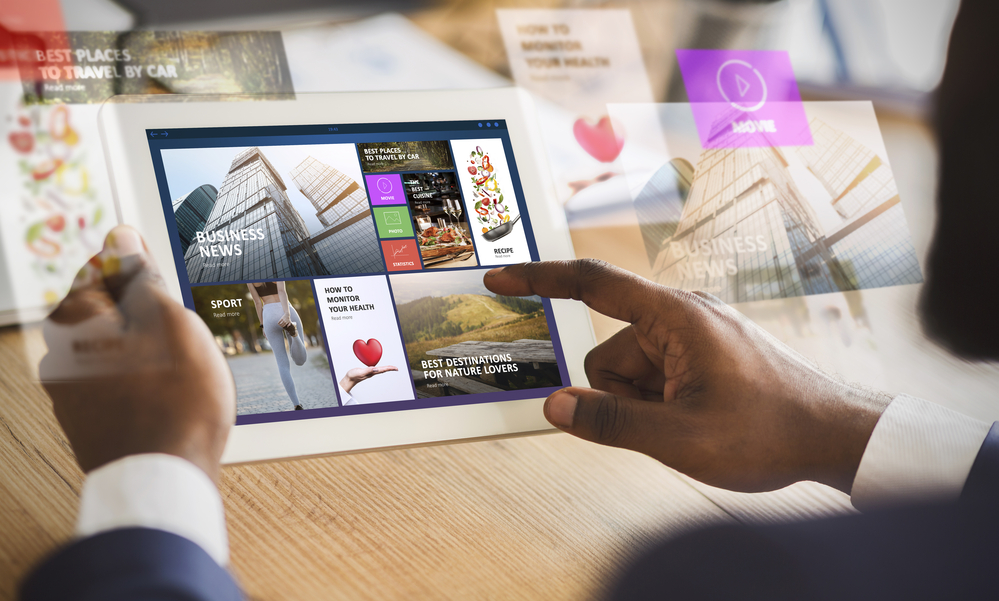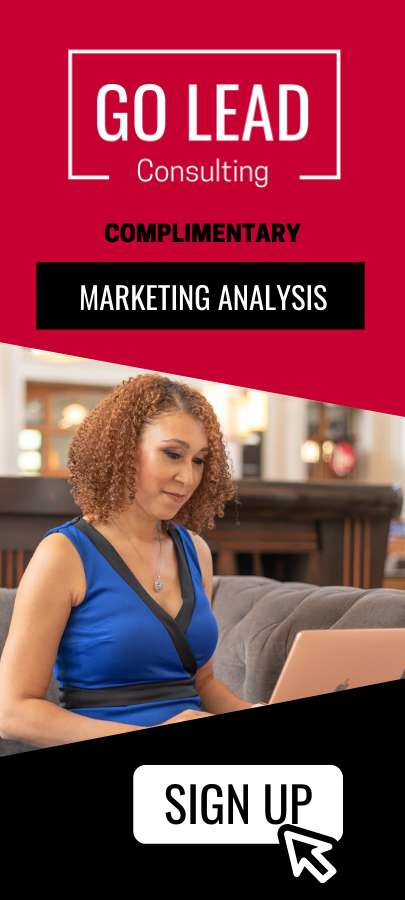|
One of the most essential components of running a firm is acquiring new customers. And one of the simplest methods to accomplish it is to send targeted visitors to your website. That may seem simple, yes? Fortunately, these tried-and-true techniques not only improve website traffic but also conversion rates.
How to Increase Website Traffic in a Way That Leads to Sales Conversions Implement an Effective SEO Strategy One of the most powerful methods to drive high-quality traffic to your website is via search engine optimization. When your website is among the top rankings on the Google SERPs (Search Engine Results Pages), you not only get more traffic, but the people who are clicking through to your website are already interested in your offerings. Quite often, they're even ready to buy! It can take time for SEO efforts to yield results, but it's well worth the effort. Once your page ranks for the right keywords, Google will drive new customers and sales day after day for weeks, months, or even years! Use Google AdsAnother way to get high-quality traffic is by investing in Google Ads. With Google Ads, you only pay when a user actually clicks on your advertisement and goes to your website. This strategy works well in conjunction with SEO, especially for pages already ranking on Google. It essentially doubles your visibility in the SERPs, making it even more likely for potential customers to click through to your site! Utilize Social Media MarketingSocial media marketing is another powerful tool for traffic and conversions when leveraged correctly. Platforms like Facebook, Twitter, Instagram, and TikTok are great for establishing a connection with your audience and cultivating a brand that your audience knows, likes, and trusts. The key with social media is to post valuable, engaging content consistently. Start with one platform as your resources permit, and spread out to other platforms as your brand grows! Optimize Your Site for Best User Experience One of the best ways to boost your website traffic is by optimizing your page's user experience. By this, we mean making it as easy as possible for visitors to find what they are looking for within moments of arriving on your landing page, whether they're searching for a specific product or trying to complete an action - like making a purchase. A positive page experience is also valued by Google, which means it's good for SEO too. You can't go wrong with a minimalist, clean layout; the page will load faster, and there's less to distract the user from taking the desired action. Include Strong Call-to-Action (CTA)Strong CTAs added to social media posts, site content, and cart buttons are proven to increase conversion rates. Use verbs like "claim," "shop," and "save" to encourage prospects to take action. For example, "claim your discount" or "save your spot" are both great CTAs. Add a Pop-Up Lead MagnetConsider adding a pop-up sign-up form that offers something of value in exchange for the visitor's email address, like an ebook or a free webinar. This way, even if the visitor does not become a customer, they become a lead that you can nurture (and eventually convert) with email marketing. These are just a few ways you can increase your website traffic and boost conversions. Need some help implementing these traffic-boosting, customer-winning strategies? Request your free marketing analysis today, and we are happy to help you reach your sales goals! Find us on Design Rush here: https://www.designrush.com/agency/profile/go-lead-consulting
0 Comments
With its low barriers to entry and minimal startup costs, podcasting is one of the fastest-growing forms of content creation in 2021. According to an estimate by a leading podcasting consultancy, there are more than 2 million podcasts and counting. In an environment that is becoming more competitive and saturated by the day, it's not enough to simply know how to podcast. You need a strategy that will help you stand out in a crowded field. Read on to find out how. How to Podcast for Profits: Strategies to Build and Monetize a Podcast
Thanks to a wide variety of low-cost audio equipment and production software, any person, business, or organization can make their own podcast. Starting a podcast is easy, but creating a successful podcast is a lot trickier. You are competing with literally millions of other podcasters while also vying with countless other sources of entertainment, education, and news for your audience's attention. But with the right approach, a podcast can be the perfect tool for promoting and developing your business' brand and customer base. Find an Experienced and Well-Connected Producer When setting up their company's podcast, many businesses make the mistake of focusing too narrowly on on-air talent while neglecting what goes on behind the scenes. Sure, having charismatic and engaging hosts is absolutely crucial to your podcast's success, but so is finding a talented producer. Your producer can make or break your podcast. Hosts are the voice and public face of the podcast, but the producer is the heart and brain. A good producer provides ideas for each show's programming and formatting while also taking care of key tasks such as editing and publishing the show. Most importantly, producers often act as a show's manager, recruiting guests and making arrangements for them to appear, so ideally you want a producer with a lot of contacts in your industry. Use Your Podcast for Lead Generation, SEO, and Networking A podcast is a great way to publicize your services and generate leads. One way you can do this is by incorporating calls to action into your interviews as well as at the beginning and end of each show. These can be small asks, like referring listeners to your website or your social media. Also, you can include links in the show notes so your sites are easier to find. Podcasts are also terrific networking opportunities. By inviting guests from your industry or adjacent sectors, you can start conversations that develop into full-fledged business relationships. Lastly, podcasting works well as an SEO tactic. You can embed a high-quality link in your show's description on large platforms like Spotify and Apple Podcasts, generating loads of traffic to your company's site. Businesses are increasingly realizing the value of podcasts as a smart, creative way to generate business and engage meaningfully with their customers. Many companies want to break into podcasting but they don't know how to make it work for them. If you're interested in starting a podcast for your business, reach out to learn more about our podcast management services. The bar for websites is continuously rising. Your potential customers want a website that is visually attractive, simple to use, and contains high-quality information
The difference between an amateur website and a professional design for your web is enormous. If you're a small business owner, it's best to invest in the services of professionals. Here are some reasons why:
In the world of marketing, there are a lot of different terms that get thrown around. With so many services available, it can be hard to know which one will best meet your needs and offer you the best return on investment. One term you may not have heard before is fractional CMO. If you're wondering what this means exactly or how it differs from other types of consultants, keep reading
With so many in-person sales opportunities shut down in 2020, many brands began to reach out looking for new strategies to connect with their audience with sales messaging while they were unable to visit networking events or sell easily inside a brick and mortar venue. It became clear that until that point, many of these companies thrived without doing much work online, but the moment required stretching and planning new ways to operate. Now, those business leaders understand the value of having a foundational marketing strategy that incorporates online business endeavors such as digital advertising.
To help those seeking out strategies to use digital ads for conversions, we've outlined some information below to help define digital ads and share tips for optimizing your strategy to get better results. What is Digital Advertising? Digital advertising includes ads on search engines like Google; social media networks such as Facebook Ads, or display ads on web and mobile. Ads are one of the oldest and most common forms of advertising on the internet. What is Digital Ad Tracking? Digital advertising offers high definition targeting down to the individual user, allowing advertisers to reach the right audience with their message. For website retargeting, an increasingly common subset of digital advertising, marketers find their target customers through websites that are visited by consumers prior to conversion. With retargeting ads being served only when visitors have been identified as potential buyers (through cookies with some other form of validation), these type of ads provide extremely targeted marketing — a powerful way bring new leads into your sales pipeline. Today's marketers have plentiful data, so we're able to target individuals we believe have buying intent based on their online activity. Tracking cookies allow us to see a history of each person's interest in news, websites they visit, places they shop, and what they search for. This allows us to know which IP addresses (the markers that show what device a person is using) to target and work towards a close. The system can also go as far as providing a conversion cycle for visitors to your own website. A code added to your site tracks when a potential customer visits one of your properties such as your website or app. Once they visit a page you've tracked, the system knows they have interest and exposure to the brand and can target them with intention to close a sale. You can create sales cycles for each sales page of your website to stay in front of your target customer and consistently message them until they close a sale. The goal of this strategy should be to encourage action towards completing whatever step comes next: whether it's making a purchase or signing up for more information. In other words, with digital advertising you are targeting those who would most likely already have an interest in what you're selling and able to keep in front of them, so they can be converted into a buyer. What if My Digital Ads Aren't Converting? Digital advertising is just one piece of a total system of closing sales for your business. It's important to make sure all of the pieces to your online business systems work in tandem to get the best results from each piece. Every business is different, so what works for one company won't be the same best practices for another. If you're not seeing results from digital advertising, it may be time to optimize and review other aspects of your strategy. Some areas to consider:
How Do You Measure Digital Ad Conversions? Be sure that you are tracking conversions in an easy way. Statistics about each ad can prove useful as a starting point but don't get stuck there if you want to optimize your campaign. Even though many people measure clickthroughs, generally conversions are taken into account once a person takes an action on the landing page they were lead to after clicking through from an advertisement. These actions include things like watching videos or filling out forms (signing up for more information). Some conversion stats to consider include:
How Much Should I Budget for Digital Marketing Ads? Once you know which digital platforms are best for you, how can you determine the amount of your budget to spend? You should always do a test campaign and allocate the maximum amount possible for each channel. If you see results and want to continue with that tactic, then adjust based on those results and what is available in terms of budget. The bottom line is this: users are accessing information from smartphones at least once every 15 minutes , so they will likely see your ads multiple times per day (unless they opt out). By setting up retargeting through online advertising tactics, it's easier than ever to get more sales-ready leads into your funnel because you're targeting people who've already shown interest in your product or service. Since these ads carry considerable weight in terms of their capability to convert customers, a good budget allows you to pay to be seen more often in a shorter period of time, which quickens the conversion path. Taking a smaller budget might also reduce your capacity to achieve real results. For an easy calculation, consider the lifetime value of a single customer. For example, if a product costs $30 and a customer typically buys monthly for 2 years, your customer lifetime value is $720. This means you can budget to spend about $72-108 per converted customer and get returns over $648 each over 2 years. Digital ads can be extremely valuable as part of your overall marketing system and business foundation. With the right tracking and strategy, they can bring new leads into your sales pipeline. Remember that measurement is key to increasing conversion rates. Need help getting started on digital marketing for your business? Go Lead Consulting can assist with setup and management of Google Ads and Display, and we can also provide SEO, writing and website redesign to help you get better conversions. Sign up for a free marketing analysis. Small businesses often struggle with online marketing because they expect instant results. They try a single Facebook ad or email coupon promotion and conclude that nothing works. Unfortunately, customers don't respond to just one online encounter. It takes a variety of multi-layered encounters to get them to choose your business. Successful online marketing for small business requires a focused concert of smaller efforts (such as Google ads, SEO, PR, and content generation) over an extended period to show results.
A few years back, I worked as a subcontractor for a marketing firm in California that served a number of home services companies including tiling and flooring, HVAC, pool installation, landscapers, and roofing contractors.
|
MENU
Email: krystal@goleadconsulting.com
Phone: 720-515-3078
Mailing Address
Go Lead Consulting
1580 N Logan St Ste 660 PMB 62223
Denver, Colorado 80203, US
Phone: 720-515-3078
Mailing Address
Go Lead Consulting
1580 N Logan St Ste 660 PMB 62223
Denver, Colorado 80203, US










 RSS Feed
RSS Feed